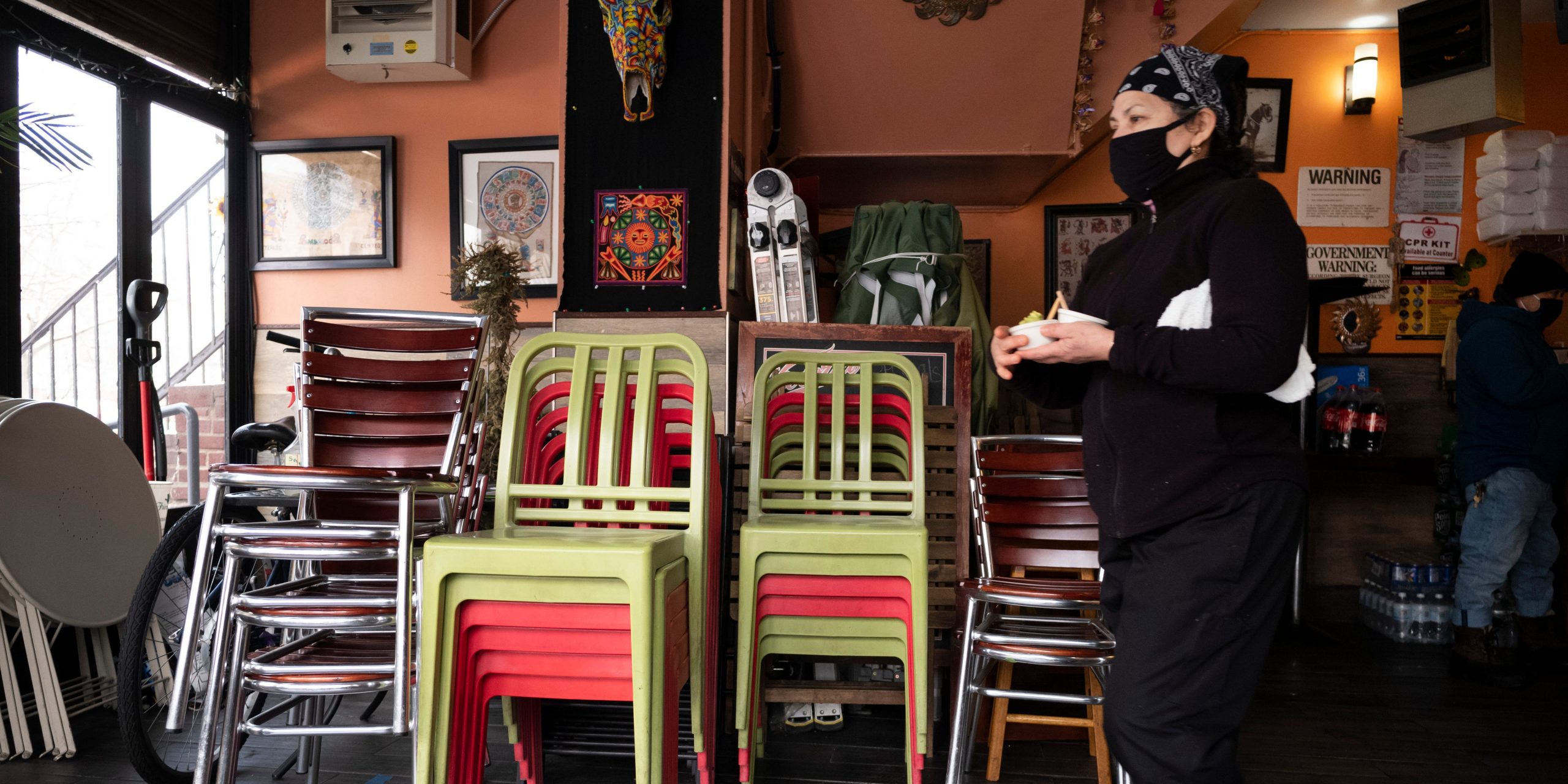
AP Photo/Mark Lennihan
- As Americans await the passage of Biden’s stimulus plan, some states are passing their own relief.
- At least five states have passed or proposed their own economic and virus aid legislation.
- But critics argue their success undermines calls for state and local aid from the federal government.
- Visit the Business section of Insider for more stories.
As President Joe Biden’s $1.9 trillion stimulus plan slowly inches toward passage, more and more states are starting to take matters into their own hands.
Several states across the country have passed or are considering their own economic stimulus measures to address COVID-19 hardships, the Associated Press reported.
At least five states have spent hundreds of millions of their own dollars to help address the economic fallout of the ongoing pandemic for jobless residents and strapped business owners alike.
But some critics argue the success of these states’ individual relief bills undermines continued calls for significant state and local government aid in the federal stimulus package. Biden’s relief plan currently calls for $350 billion of federal money to be sent to state and local governments.
The issue proved a point of contention for Congress during negotiations for December’s stimulus package, with many Republicans arguing that the billions of dollars directed toward states was an effort to “bail out” Democratic-led states they accused of overspending. The issue was eventually nixed from the final package.
Sen. Rick Scott of Florida, a frequent and vocal critic of federally-funded state relief, told the AP that states passing their own virus relief are good signs.
"It's great news that states are doing well, many seeing revenues higher than projected, and are able to help their citizens during this pandemic," he said in a statement to the AP. "House and Senate Democrats should follow the facts and ditch their radical efforts to award wasteful bailouts for failed politicians in states like New York and California."
The growing number of states employing their own efforts also suggests that many states are faring better during the pandemic than originally anticipated, the AP reported. Many state governments have maintained healthy budgets, despite ongoing economic hardships wrought by the virus and subsequent lockdowns.
Still, many governors are insistent on more help from the federal government, arguing their individual relief efforts directly target residents who remain in dire situations nearly one year after the pandemic began, according to the AP.
Maryland's Republican Governor Larry Hogan signed more than $1 billion in tax cuts and economic relief aimed at struggling businesses and jobless residents last week. The package includes direct one-time stimulus checks of $300 for certain people and $500 for families, according to the AP. The package also includes up to $9,000 in sales tax relief for small businesses, the outlet reported.
"If we can do that in Maryland, there is no reason why President Biden and Republicans in Congress cannot work together to pass bipartisan federal COVID-19 relief," he tweeted.
Meanwhile, California Governor Gavin Newsom signed a hefty $7.6 billion COVID-19 relief package this week that will send $600 one-time payments to 5.7 million people, and will direct more than $2 billion in grants for struggling small businesses according to Axios.
Community colleges, hair salons, restaurants, food and diaper banks, and the child care sector will also receive financial help, the outlet reported.
Lawmakers in New Mexico have proposed a relief package that would provide $200 million in direct grants to businesses, a $600 tax rebate for low-wage workers, and a four-month tax holiday for restaurants recovering from dining restrictions, the AP reported.
The bill is awaiting Governor Michelle Lujan Grisham's signature.
North Carolina Governor Roy Cooper unveiled a $695 million emergency budget proposal earlier this month that, if passed, would provide state money for teacher and school staff bonuses, hazard pay for law enforcement officers, and funding for rural broadband and small businesses, according to the AP.
The outlet said Republicans in control of the legislature are unlikely to pass the legislation, though they haven't dismissed it outright and have signaled support for additional COVID-19 relief.
And Pennsylvania Governor Tom Wolf signed legislation earlier this month funding grants of up to $50,000 to owners of struggling bars, restaurants, and hotels, expected to be available by next month, the AP said.
But even though more states are taking an active role in recovery, Congressional Democrats aim to pass Biden's economic rescue plan in a matter of weeks. The House of Representatives plans to vote on the bill by the end of this week. The Senate will take up the bill the following week, and Democrats hope to have a final version enacted by March 14, the day that enhanced unemployment benefits for millions of Americans start to end.